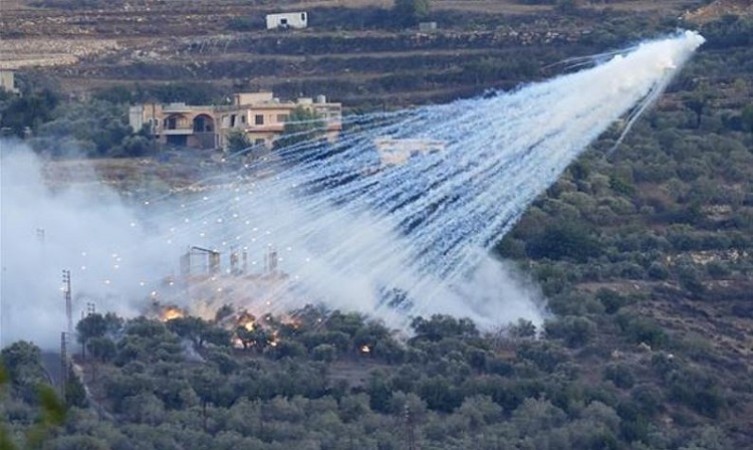
The ongoing conflict between Israel and Hamas has brought the use of chemical weapons into question, with both sides trading accusations. In modern warfare, the use of chemical and biological weapons has significantly diminished, with such actions drawing international condemnation.
Allegations have surfaced from multiple sources. Human Rights Watch claimed that the Israeli military employed white phosphorus munitions in Lebanon and Gaza, which can reach extreme temperatures. Meanwhile, Israeli President Isaac Herzog asserted that Hamas militants had plans to use cyanide agents against Israeli civilians, supported by evidence found on a USB drive recovered from a Hamas operative.
The use of chemical weapons, if proven, carries severe consequences due to stringent international laws that prohibit their use. This has become a "red line" beyond which supporting the users becomes nearly impossible for any state. For Hamas, already facing significant military pressure from Israeli forces, any chance of redemption or reconciliation would likely vanish.
Chemical weapons are defined as toxic chemicals that can be weaponized to harm large populations. International laws, such as those outlined by the Organisation for the Prohibition of Chemical Weapons, strictly prohibit their use. The 1925 Geneva Protocol completely bans the use of chemical and biological weapons in war, making it one of the most enforceable laws in this regard, applying to both state and non-state actors.
Chemical weapons are often attractive due to their affordability and ease of production, even allowing smaller terrorist groups to manufacture them. However, international regulations can be ambiguous about which chemicals are classified as chemical weapons, contributing to their use in conflicts, particularly in the Middle East. Notably, white phosphorus is not banned by the 1997 Chemical Weapons Convention.
Historically, the use of toxic chemicals in warfare has caused significant casualties, such as during World War I when phosgene and sulphur mustard resulted in 100,000 deaths. The United States' use of Agent Orange, a defoliant, during the Vietnam War is also a well-documented case.
In more recent history, the Syrian Civil War, which began in 2012, saw credible reports from organizations like the United Nations, the Organisation for the Prohibition of Chemical Weapons, and Human Rights Watch regarding the use of chemical weapons by the Syrian government. Chlorine was commonly used, and sarin and sulphur mustard were also reported. International pressure led to an agreement for the supervised destruction of Syria's chemical weapons, with the threat of military strikes by the United States and France if chemical weapon use continued, although this proposal was opposed by Syria's allies, Iran and Russia.
The lesson from the Syrian Civil War highlights the international condemnation and pressure that the use of chemical warfare brings. In the current Israel-Hamas conflict, such actions would be highly undesirable for all parties involved as the situation continues to escalate.
Israel-Hamas Conflict Enters 19th Day: A Global War for Freedom?
Israel-Hamas Updates: US, UK Call on Israel to Postpone Possible Gaza Ground Operation